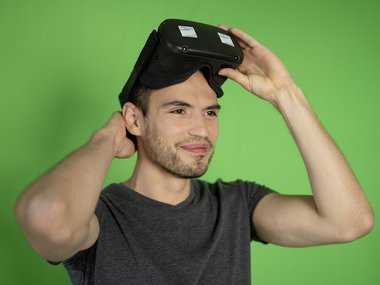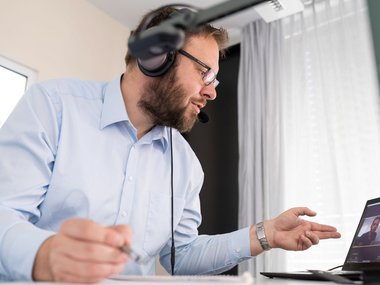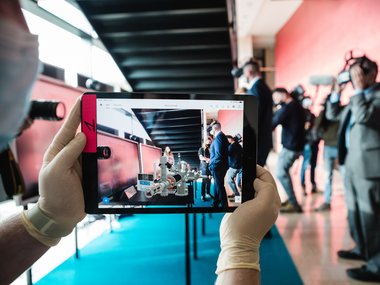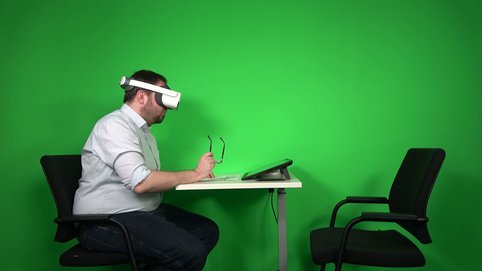Digital Teaching at the MPSP
Since the main goal of the Max Planck School of Photonics is cross-locational and individual teaching by the best minds in photonics research, we need one thing above all: digital courses! We see ourselves as a pilot project for innovative digital teaching applications and services. Our team at the Digital Teaching Lab in Jena is at the side of the MPSP Fellows and PhD candidates with advice and action.
Our goal is to offer our PhD candidates innovative digital courses from all areas of photonics on our virtual campus. At the same time, we want to support the MPSP PhD candidates and Fellows in becoming pioneers in the field of digital teaching themselves. For this purpose, our digital teaching team offers the following services:
Digital Teaching Hardware / Software
At the Digital Teaching Lab, we provide the hardware and software for the best digital teaching production. For example, for video and 3D environment recording, we have the SLR cameras, microphones, tripods, lampshades, 360-degree cameras, and authoring software for shooting, recording, and post-productions. Moreover, we have VR and AR Hololens to demonstrate the 3D environments or virtual objects. Interested MPSP Fellows and PhD candidates who want to use this equipment for their teaching activities can contact our digital teaching team at any time (photonics@maxplanckschools.de).
For MPSP Fellows: Contact us!
Contact: photonics@maxplanckschools.de
Fabian Lukas
Responsible for Digital Teaching Strategies at the MPSP and a physicist, Fabian Lukas is the communication channel between our team and the Fellows. Maintaining connection to the Abbe School of photonics and the FSU Jena, he combines a physicist’s background with the development of digital learning media such as scientific video production including 3D animation, remote experiment control setups, and AR and VR solutions for hybrid teaching and learning.
Johannes Kretzschmar
The CTO of the Lichtwerkstatt Jena and computer scientist Johannes Kretzschmar develops immersive VR and AR lab environments for students as an alternative or addition to hands-on lab training. Students can immerse themselves into the virtual world and repeatedly interact with the objects to imagine what they can do in the laboratory.



